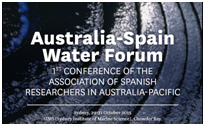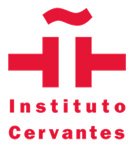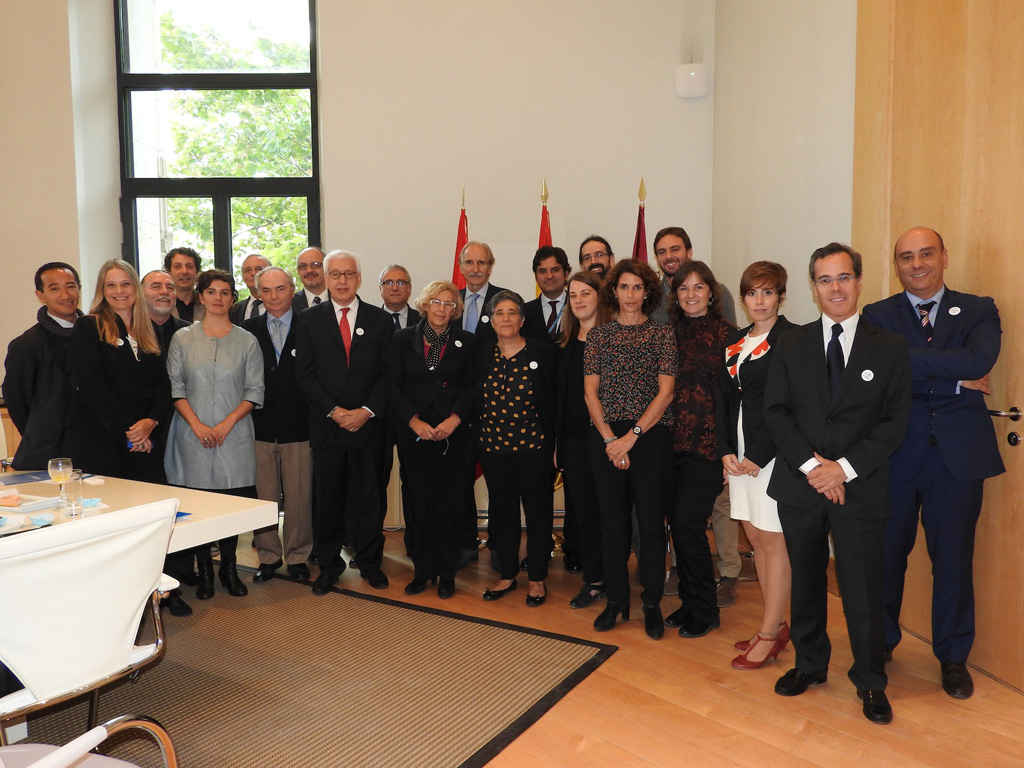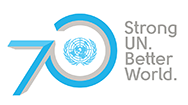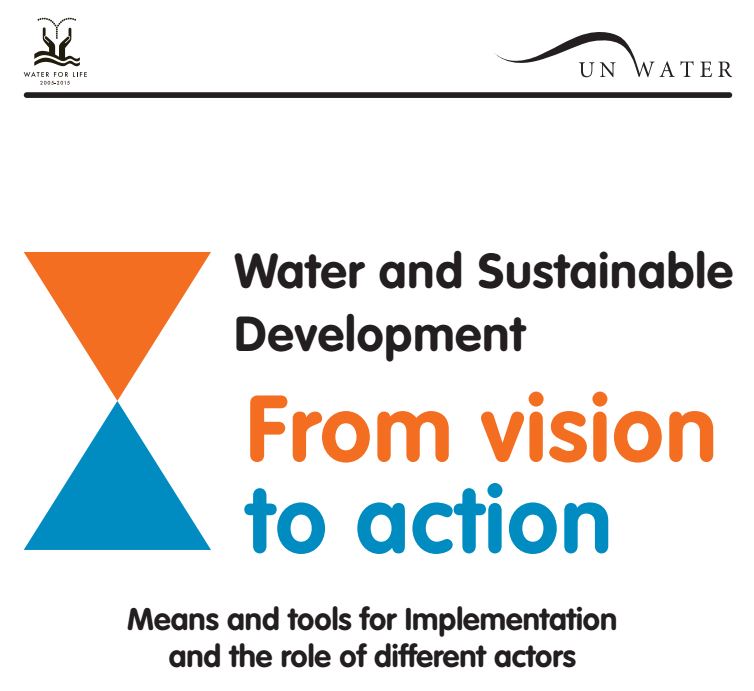- ON THE DECADE
- THE DECADE'S CAMPAIGN
- REPORTING ON PROGRESS
- THE DECADE'S PROGRAMMES
- FOCUS AREAS
-
- Access to sanitation
- Financing water
- Gender and water
- Human right to water
- Integrated Water Resources Management
- Transboundary waters
- Water and cities
- Water and energy
- Water and food security
- Water and sustainable development
- Water and the green economy
- Water cooperation
- Water quality
- Water scarcity
- FOCUS REGIONS
- RESOURCES FOR
- UN e-RESOURCES
World Conference Series 2012
4th World Conference on Water and Cities
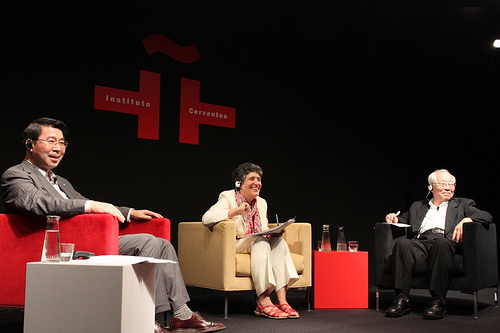 From left to right: Mr. Kazunari Yoshimura, Ms. Josefina Maestu, Mr. Kotaro Takemura
From left to right: Mr. Kazunari Yoshimura, Ms. Josefina Maestu, Mr. Kotaro TakemuraThe World Conference Series on water and cities, organized by UNW-DPAC in collaboration with the Cervantes Institute, has moved to Japan.
The 4th conference had as invited keynote speaker Ms Josefina Maestu, Director of the UN-Water Decade Office in Zaragoza. Ms Maestu addressed the main challenges for basic water and sanitation services in cities for developing countries and analysed progress made since 1992. She explained that this has been part of the agenda discussed at Rio+20 by Heads of State. She was joined by Mr. Kotaro Takemura, Secretary of Japan Water Forum, and Mr. Kazunari Yoshimura, Director of Global Water Japan.
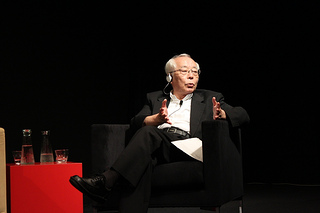 Mr. Kotaro Takemura, Secretary of Japan Water Forum
Mr. Kotaro Takemura, Secretary of Japan Water ForumMr Takemura explained the evolution of water services in Tokyo in the last 40-60 years when water supply and sanitation services were poor. Progress has been possible, he explained, thanks to good governance and important investments in infrastructure. Many lessons exist from Japan, from low-tech technologies to sophisticated technologies that can be of use in other countries. There are also lessons in water allocation with the early implementation of the "Equal Sharing System" to deal with conflicts between different settlements sharing the same water sources. He pointed out the importance of groundwater management in Japan – as a common pool resource- for improving water quality in the Tokyo bay and assuring water supplies.
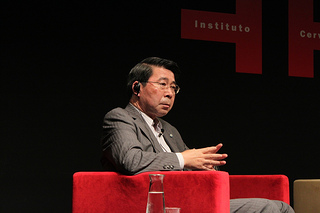 Mr. Kazunari Yoshimura, director of Global Water Japan
Mr. Kazunari Yoshimura, director of Global Water JapanCity and regional planning being now a priority after the Tsunami, Mr Yoshimura focused on the importance of managing water in disaster situations and for resilient systems, including urban and municipal planning to avoid major damages as resulted from the Tsunami that devastated the country – and water and wastewater treatment infrastructures- earlier in the year. He pointed out that there have been lessons demonstrating the need to consider traditional knowledge in relation to the location of cities. The reconstruction of cities will also need to consider dual water supply systems (for drinking water and other human uses).
The dialogue among the panelists centered around the importance of energy efficient water infrastructures, the potential for commercial products (energy, fertilizers) to be derived from wastewater, the need to change the concept of the overarching power of technology which has driven city development – that can do little against the power of nature. Questions from the audience related to the situation in developing countries, including the difference between improved and safe water supplies and the role of Japan in improving water services in developing countries. Speakers pointed out the importance to invest in capacity development in developing countries (in addition to helping build infrastructure). An example is the training of engineers in Japan. Japanese cooperation has built many wells and sanitation services. Now there is a greater focus on disaster prevention and management.
During the event, there were also be a viewing of the documentary on Lake Victoria produced by UN TV and UNW-DPAC.
>> UNW-DPAC home
>> In the news
>> What we do
>> Where we are
>> Visual identity
>> Events Agenda
>> Internship programme
>> Media Programme
>> UN Water Dialogue Series in Casa Solans
>> 'Water for Life' UN-Water Best Practices Award
>> 'Water for Life' Voices Exhibit and Campaign
>> Zaragoza Conferences
>> World Conference Series
>> Bimonthly Publications Review
>> Information briefs
>> Readers
>> Special reports
>> Water facts and figures
>> Thematic video series
>> Conference video series
>> UNW-DPAC external evaluation of 2011-2015 workplan [ - 209 KB]
- 209 KB]
>> Biennial Report 2014-2015 [ - 1.18 MB]
- 1.18 MB]
>> Biennial Report 2012-2013 [ - 1.18 MB]
- 1.18 MB]
>> Biennial Report 2010-2011 [ - 566 KB]
- 566 KB]
>> Annual Report 2009
[ - 1.05 MB]
- 1.05 MB]
Copyright | Terms of use | Privacy notice | Site Index | Fraud alert | Help






